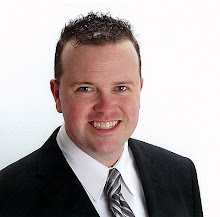
In a North Texas housing market where starts are off a third from last year’s pace, mortgage lenders are cutting staff, Realtors are competing aggressively for a contracting number of sales and the number of foreclosures is the only thing on the rise, the first sign of hope — be it however modest — has emerged.
Houses in the $250,000 to $300,000 price range actually saw sales increase by 0.7% in the second quarter from 2,412 to 2,450, according to research by the housing consultant Residential Strategies.
While that number is far off the North Texas housing market’s glory days from earlier this decade, every other price point has continued to see dramatic drops, according to Residential Strategies data. Houses priced from $111,000 to $200,000, for example, saw a drop in sales of 14% in the last quarter. And closings on high-end homes — those costing $501,000 or more — did no better than hold steady.
Area builders are responding, with starts on houses in the $251,000 to $300,000 price range up 6.4% in the last quarter. All other price points saw a decrease, as many builders are trying to unload their inventory of finished homes.
“There’s lots of activity in different parts of the region,” said Bob Morris, executive officer of the Home Builders Association of Greater Dallas. “It’s not new spec-built product. It’s been sitting on the market for six to eight months. There’s no rational reason to bring new product into the market.”
The numbers reflect “current market realities,” said Jim Gaines, research economist with the Real Estate Center at
Texas A&M University. It’s difficult for builders to get reasonable financing for houses at lower and higher price points, he said.
“The segment of population that can afford homes are in the above-median price bracket,” he said. “And a lot of these buyers may be saying now is a good time to hire a builder who might be selling a $250,000 or $300,000 house that a year ago would have been a $300,000 to $350,000 house.”
‘Not business as usual’
Nationally, home sales are off by 62% since the peak of the housing market in January 2006, according to numbers from Residential Strategies. In the Dallas-Fort Worth area, closings are off 32% from their peak.
“It’s not business as usual, but it’s not a disaster,” said Jody Reese, principal with Residential Strategies. “You’ve got to readjust.”
And that’s what many builders have done, he said. Custom builders that had ventured into lower- and midpriced homes have moved back to houses priced between $350,000 and $600,000, Reese said.
“They just went back to their roots, figuring there was still a market there and more money to be made,” he said. “It’s gotten pretty competitive.”
Drees Custom Homes has houses for sale in more than 30 communities in the area, said Jamie Ovalle, director of marketing. Out of those, there are about five that have homes priced in the $150,000 range. Most of the new building is in the higher-end, Ovalle said, and the majority of the company’s sales are near Drees’ midpoint range of about $280,000.
Drees homes are selling well in areas like McKinney, Fate and Allen, Ovalle said, without disclosing sales figures. “It’s what’s hot at the moment,” she said.
The top market areas, according to Residential Strategies, include Southlake, Frisco, Allen, Castle Hills, Keller, Colleyville, Plano and Lucas. In many of those areas, homes priced at $300,000 and up are driving the housing market.
In Flower Mound, Lantana and Highland Village, houses priced in that range made up 68% of the annual starts, according to Residential Strategies research. In west Allen, the higher-end houses made up 86% of the starts. Of the 376 annual starts in Keller and North Richland Hills, 92% were at $300,000 and up.
“It all depends on where you build and what you build,” said Greg Alford of luxury home builder Alford Homes. The builder, with 28 years of local experience, has seen success lately in Dallas’ Preston Hollow neighborhood, which has attracted a number of builders during the past couple years.
The main impact of the sagging market is that finished houses are sitting empty longer.
“A lot of home builders just jumped into Preston Hollow thinking they could make money, coming in with bad designs and crazy prices,” Alford said. “That’s a lot of the inventory that you have sitting there. There are reasons that homes aren’t selling in some cases.”
Alford is sold out of homes in Preston Hollow. He just started building a spec home and has recently purchased a second lot there, he said.
During the past couple years, he has sold 30 to 40 houses in Prosper and now has an inventory of five. Alford sells an average of 18 homes a year, and will be close to that this year, he predicted. But profits won’t be what they were, because it’s a buyer’s market and builders are willing to cut prices on finished homes.
“We’re doing things differently than what we typically would do if it were a seller’s market,” Alford said. “Our goal for this year is to be in business and be profitable. 2009 is going to be a slow-going, getting back to normal.”











